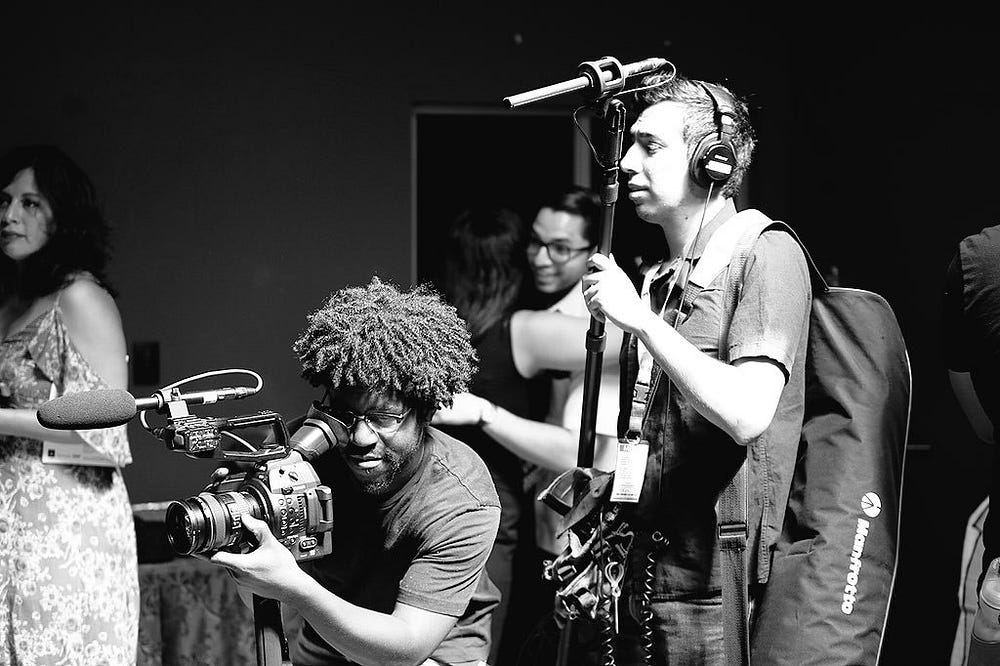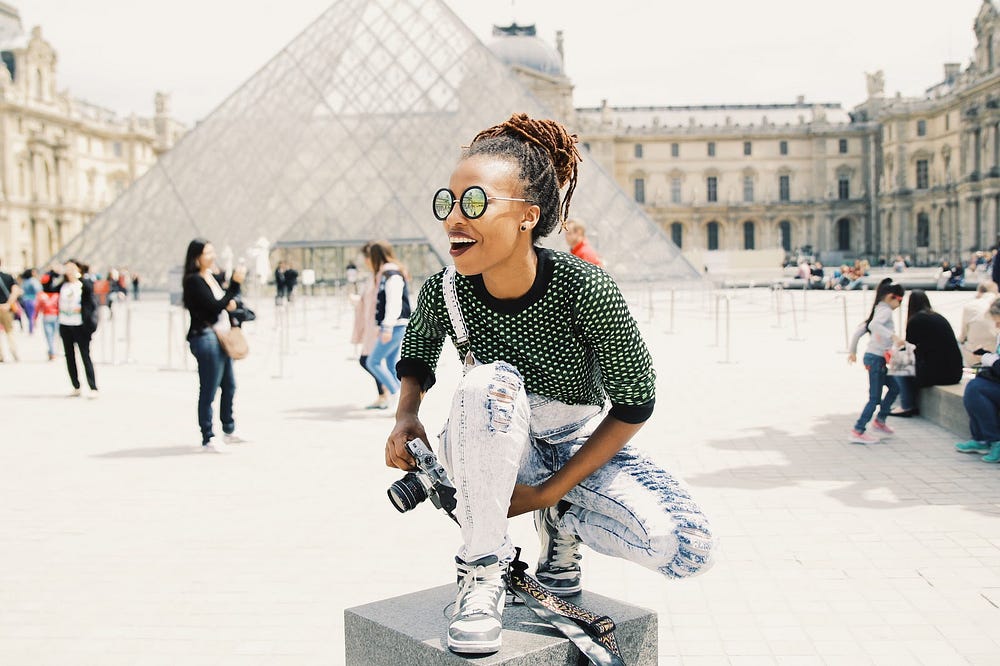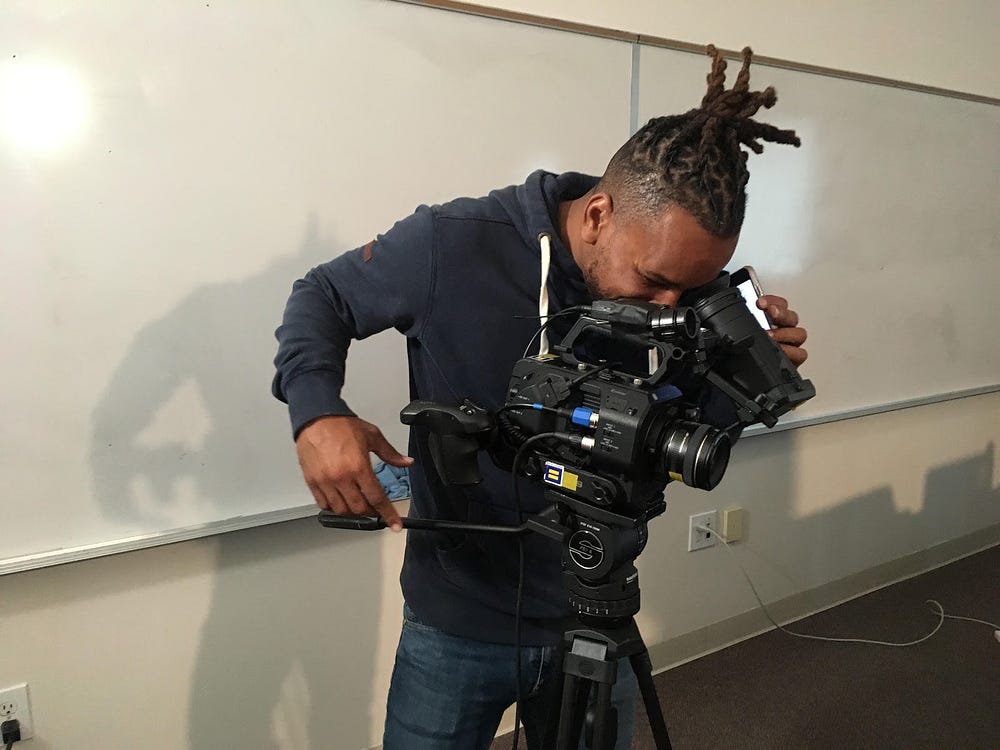Storyhunters Discuss Being Filmmakers of Color in America
Jad-Evangelo Nasser, Storyhunter
In honor of Black History Month, we interviewed three inspirational filmmakers of color about their experiences as creatives in America. Storyhunters Serginho Roosblad, Gregory Dukes, and Maria Simone told us about their journeys, challenges, achievements, and what has shaped them into the filmmakers they are today.
Storyhunter: How did you get started in documentary filmmaking?
Gregory Dukes: I’ve always loved documentaries. I got hooked on VICE News docs and really wanted to challenge myself to create one of my own. A Storyhunter referred me to the community, and I’ve been rocking and rolling with a few publications a couple times a year since then.
Maria Simone: My introduction to documentary filmmaking was through an internship I had in high school with the city of Greensboro, North Carolina. We were asked to focus on an issue facing our city and present it in the form of media or a play. I decided to do a short documentary on gang violence and its impact on the youth in the city.
The positive response from the community to my amateur doc effort really made an impression on me. It wasn’t about having fancy equipment. It was the story of the youth in my community that was most important. From that point on my passion for documentaries and other forms of filmmaking grew.

Serginho Roosblad: I was working as a journalist for a couple years and slowly transitioned from radio into video. There was a radio show I was working on, and one day my editor wondered if it would translate into video. I tried it with a colleague and we succeeded. The video series became a hit and, more importantly, I got hooked on visual storytelling.
After doing the video series for a while, I moved to Uganda where I worked as a freelance journalist making mostly news videos for a number of international outlets. That was a great way to start practicing the basics of visual storytelling. It’s one thing to learn how a camera works and shoot nice pictures, and it’s another thing to have content that makes sense on both a story level and a visual level. Thus, news was the perfect way for me to start doing this.
Storyhunter: We know the film industry has a lot of inequalities and we appreciate you speaking candidly about your experiences. Could you tell us about some of the challenges you have faced or are still facing as a Black filmmaker in America?
GD: One of the biggest challenges is having to balance playing the game and staying true to oneself.
MS: I think we’re in the midst of a cultural renaissance in regards to Black filmmakers and I love that more of our stories are being told. However, one of the challenges I’ve come across is bringing recognition to stories that are on the margins, even within the Black community. It seems like the industry is only interested in broad segments of our stories and less focus is put on the texture of Black lives.

SR: Convincing news outlets and editors that the stories from and about Black communities, on a global level, are important to be told. Not to just a Black audience, but to everyone. Too often when I pitched stories from Uganda, for example, I was told that they had another ‘African piece’ about a country thousands of miles away a week before.
In other cases, it’s fighting for the characters in my piece. I’ve had cases where Black characters’ experiences were not seen as believable so editors suggested adding an expert in the piece to ‘give it more context’ — as if the voice and story of the Black character cannot stand on its own and needs some validation. And because I’ve seen this happen too often, I see a pattern when it comes to how important the voices of Black people are seen.
Storyhunter: As a filmmaker, what do you hope to achieve with your work?
GD: Ultimately, I hope to change lives, perspectives, and entertain the world with my creations, whether documentaries or full-feature films.
MS: My goal is to be a part of the evolution of our stories in film and TV, both niche and broad. It’s important for everybody to feel represented on screen. As a Black woman, I want to be able to see all aspects of our stories portrayed in TV and film. I think we’re making headway, but we still have a way to go.
I have a specific interest in music documentaries, so one of my goals is to shine light on artists that have had an impact on the culture and their genres respectively. There are so many stories out there that haven’t been told.
SR: Aside from being a filmmaker, I’m also still a journalist, and as such, I hope that whatever I produce will help people understand some part of the world around them that they didn’t know before. Even if it’s just the tiniest fact, it’s part of a larger story.
Storyhunter: Do you have any advice for current and upcoming filmmakers of color in America or around the world?
GD: Don’t compromise your integrity, and always follow your intuition.

MS: Technology wise, don’t overthink it. There have been amazing films made on phones and inexpensive equipment. Your voice is everything. You have an unique experience no one else can duplicate, so stay true to that.
SR: Whether it’s fiction, such as Marvel’s ‘Black Panther,’ or documentaries, such as ‘13th,’ ‘Whose Streets,’ ‘I’m Not Your Negro,’ ‘Strong Island,’ or ‘O.J.: Made in America,’ they all show that stories told by filmmakers of color, in this case Black, are not only profitable, but can also generate much-needed conversations around race and race relations. Whether that’s in media or in our everyday life.
And it seems like we’re gaining some sort of momentum now. So, my advice would actually be more of a call to my fellow filmmakers of color to keep on bringing the walls down that have kept us from sharing our stories and perspectives for so long.
Storyhunter: Thank you all so much taking the time to talk about your work and careers.